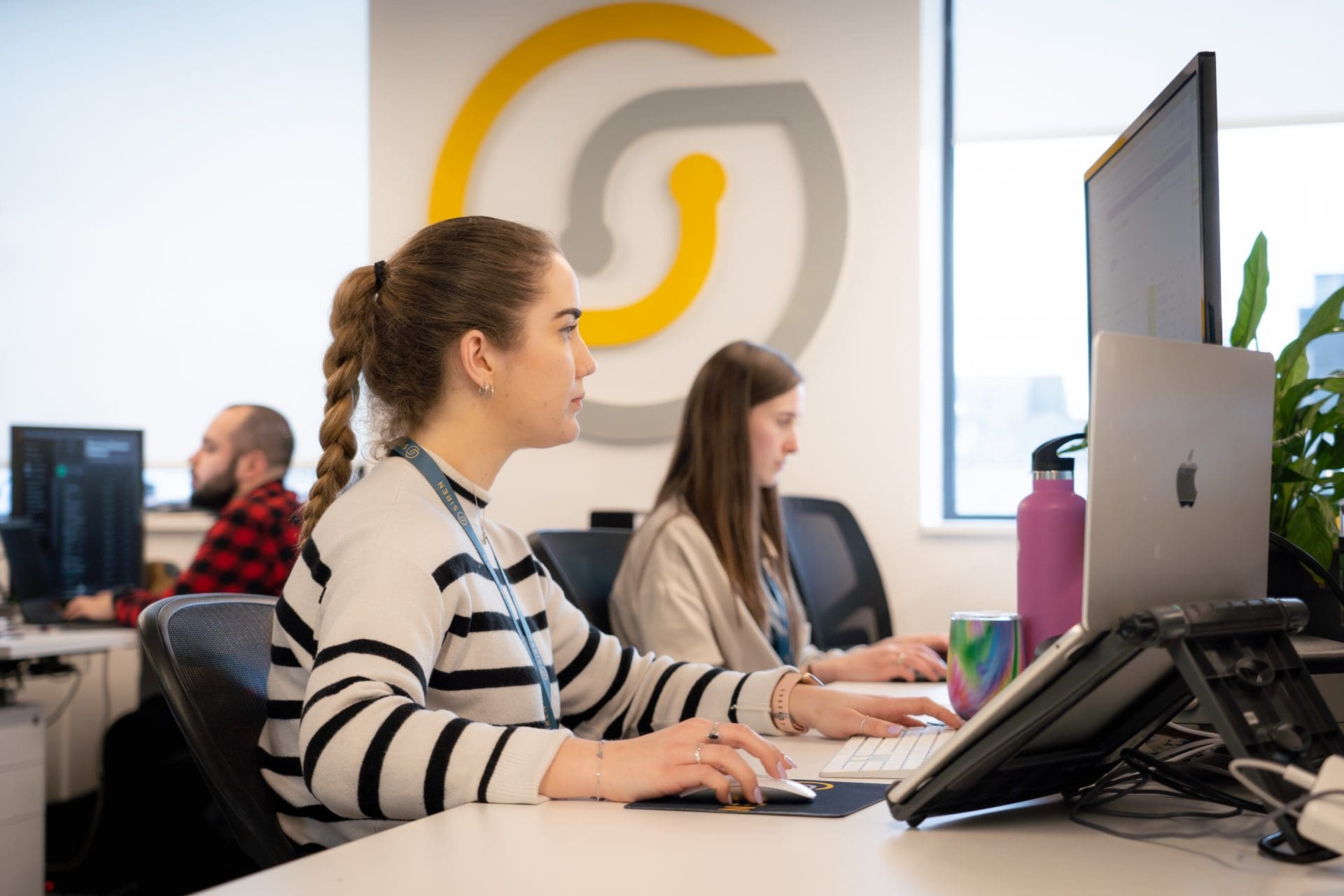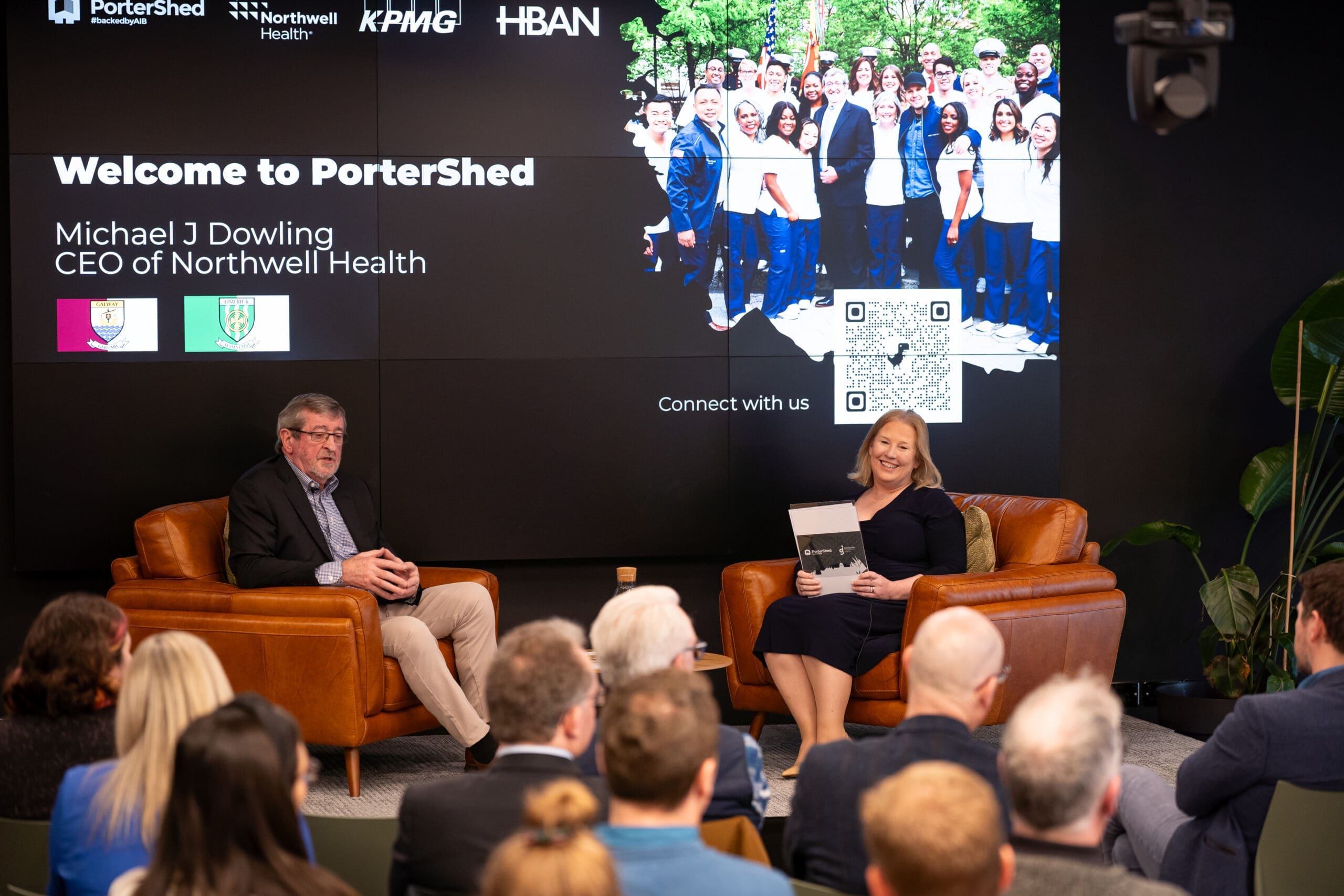In 2023, the gender imbalance in the tech industry is still an occurring issue posing a challenge to the diversity within this industry. It is no secret that men outnumber women in the tech industry, and the popular figures we hear of in giant companies all the time like Apple, IBM, Microsoft, Amazon and others are mostly men. Even while exploring the history of tech and crucial technological inventions, most are credited to men.
However, you may not have heard that an early high-level programming language still in use today, COBOL was developed as a result of Grace Hopper’s thesis of machine-independent programming languages.
We do not hear or often know of female tech inventors and innovators. Hedy Lamarr, an actress and inventor, applied for a patent for frequency-hopping technology in 1941. These technologies, which are now used by billions of people worldwide, include Wi-Fi, GPS, and Bluetooth. Or Ada Lovelace, the World’s first computer programmer, or the first software engineer, Margaret Hamilton.
One cannot help but observe that ‘masculinity’ is firmly embedded in the Tech industry because even in the majority of institutions’ and schools’ curricula, the emphasis in the STEM fields tends to be on men and their historical accomplishments.
A World Bank report found that women make up less than a third of the workforce globally in technology-related areas. In Ireland, less than 25% of STEM positions are held by women, according to the Central Statistics Office.
To look for a fresh Galway-based perspective, Keerthi Chandra Sekaren was happy to give her insight as a woman currently working in the tech field. Keerthi works as Product Owner at FleetOps, a start-up at PorterShed. Her role sits at the center of sales, engineering and design to help develop the product. ‘It’s a role that requires you to be a jack of all trades and a master of none, especially at a startup.’ At FleetOps, Keerthi’s background in Engineering & Business Analytics proved useful and helpful for the role she’s taking..
While many women in the Tech industry express that they are constantly reminded that they are ‘women’, and that their role is always defined by their gender, Keerthi feels she’s lucky enough that she did not feel this way working with FleetOps. ‘I’m taken at face value with no judgments and that’s all I ever want from my workplace.’
Working with FleetOps, according to Keerthi, is a big plus, but she believes that the most common challenge in the Tech industry encountering women is ‘that you may not have many peers who are women and that can sometimes lead you to feel a little isolated and doubtful of your performance.’
Although she did not have any in-person female role models in Tech to look up to, she follows a few of known personalities that she draws inspiration from such as Deborah Liu, CEO of Ancestry. ‘She writes a lot about women in Tech and women in the workplace in general. Her newsletter titled Perspectives is a fountain of wisdom.’
Keerthi believes that in order to prevent girls from being intimidated by the Tech industry, more women and girls need to be inspired and introduced to it at a young age. The flywheel will begin to turn when young girls witness more women in tech, reinforcing the idea that they are the norm rather than the exception. At the end of the day, she said as an advice to any woman and girl who seeks to join the Tech industry is to ‘keep pursuing what you desire without the labels.’
To get another perspective from a female Tech founder, Emma Meehan was also happy to share her insight on being a female founder and the journey that comes with it. Emma is a computer Science & Information Technology graduate, qualified personal trainer, competitive Olympic weightlifter, and the founder of Precision Sport Technology. By utilizing objective measures from human movement, Precision Sport Technology creates software to alter how athletes, coaches, physiotherapists, their patients, and fitness enthusiasts engage with and carry out workout programs.
Emma has a few role models she gets her inspiration from such as Mattie Rogers, a silver world medallist Olympic weightlifter. But she takes her inspiration mostly from her mom who works in midwifery. ‘I’ll never cease to admire the courage and dedication required to work a 12-hour night shift in critical situations which could mean life or death for the mother or infant.’ Emma learned work ethic and can-do attitude from an early age from her mother.
In her secondary school, there was little encouragement for girls to go for science, technology, and engineering, and most emphasis was on nursing and education.
‘I was very lucky as an eleven year old to have Brendan Smith, a tech advocate in Galway, visit my primary school of Scoil Bhríde Mionloch and provide netbooks to my entire class.’ They were able to create several projects over the course of six months that combined problem-solving, design, and code, which sparked her interest in this area.
She was also able to take advantage of positions that were open during her Computer Science and Information Technology degree that required quotas to be met, such as class representatives or members of a committee and she’s glad such opportunities existed. However, she does not feel quotas are a suitable long-term solution.
Emma believes that it’s important to make sure that the Irish educational system, particularly from primary through third level, is inclusive and STEM-focused.
‘Children are becoming immersed in technology from a younger age, so the next important step is to spark their interest into how the technology works and get them thinking about how they would like to improve it, and what problems are there in the wider world that could be solved.’
At a university open day, Emma remembers she heard a great quote,’If you want to discover something, choose science. If you want to create something, choose engineering’
Indeed, it is crucial to say that women, particularly in Ireland, are gradually reducing the substantial and long-standing gender gap in technology by working side by side with their male colleagues and receiving much-deserved credit for their technical expertise, creativity, innovation, and sheer willpower. However, there is still a wage gap and a lack of equitable opportunities. Therefore, it is apparent that more has to be done to empower women by increasing their access to education and providing them with worthwhile career possibilities, and to eliminate gender bias by spreading awareness and providing employment incentives.
In order for businesses to develop better and safer products that take into account every person, not just one segment of society, diversity in all aspects is super essential in the technology industry.
By Amanie Issa

